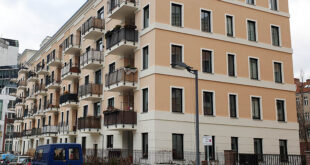More and more refugees are becoming successful in appealing against a negative asylum decision. In the vast majority of cases, they are granted protection status by the courts. The Left party complains about “political pressure” on the Federal Office for Migration and Refugees.
A growing number of refugees are successful in appealing against the rejection of their asylum application.
In the first half of this year, 35.1 per cent of all appeals before the administrative courts that were decided on the substance ended in favour of refugees, according to a federal government report, in response to a Left Party question, published by the Bundestag.
According to the Left Party, this is a higher proportion than in the previous year, when the rate was 31 per cent. Afghans in particular are often granted protection status by the courts, which was previously denied by the Federal Office for Migration and Refugees (Bundesamt für Migration und Flüchtlinge or BAMF).
According to the Federal Ministry of the Interior, from January to the end of June, the courts had declared 10,176 of 29,025 decisions, which had been reviewed, to be unlawful. The error rate of the Federal Office is particularly high in the case of Afghans. In 75 per cent of the cases, the protection seekers from the country, where the Taliban now rule again, were found to be in the right. The statistics include both cases against a negative decision as well as so-called “Aufstockungsklagen”, in which the plaintiffs sought an upgrading of their status, for example in order to be able to bring in family members to join them.
According to the data, almost 5,000 refugees from Afghanistan who were initially rejected were granted protection status in the first half of 2021 alone. For more than 4,000 of the protection seekers, this was due to court decisions, for the others it was within the framework of the so-called remedial decisions.
Despite the Taliban taking power in Afghanistan, the Federal Office for Migration and Refugees does not plan to carry out a general review of rejected asylum decisions of Afghans, according to the Ministry of the Interior. Applications will also continue to be examined individually, it said. As of 31 August, almost 30,000 Afghans living in Germany were listed in the Central Register of Foreigners as “obliged to leave the country”, but more than 27,000 of them had a toleration permit.
The Left parliamentary group in the Bundestag complained of “undue political pressure” on the Federal Office for Migration and Refugees. Ulla Jelpke, a left-wing politician who has since left the Bundestag, said that the Federal Office’s reference to allegedly safe areas in Afghanistan had corresponded to political guidelines, but not to the real conditions on the ground. The Federal Office should therefore reconsider all the Afghanistan decisions of which it is complaining and grant the necessary protection, also in order to relieve the courts.
The number of pending asylum cases at German courts is high. According to the Ministry of the Interior, 167,449 cases were pending at the end of June. The administrative courts in Berlin (12,647), Munich (10,586) and Cologne (7,011) registered a particularly high number of pending cases. Accordingly, 47 landmark decisions are pending before the Federal Administrative Court.
Felix Dappah
 THE AFRICAN COURIER. Reporting Africa and its Diaspora! The African Courier is an international magazine published in Germany to report on Africa and the Diaspora African experience. The first issue of the bimonthly magazine appeared on the newsstands on 15 February 1998. The African Courier is a communication forum for European-African political, economic and cultural exchanges, and a voice for Africa in Europe.
THE AFRICAN COURIER. Reporting Africa and its Diaspora! The African Courier is an international magazine published in Germany to report on Africa and the Diaspora African experience. The first issue of the bimonthly magazine appeared on the newsstands on 15 February 1998. The African Courier is a communication forum for European-African political, economic and cultural exchanges, and a voice for Africa in Europe.


































